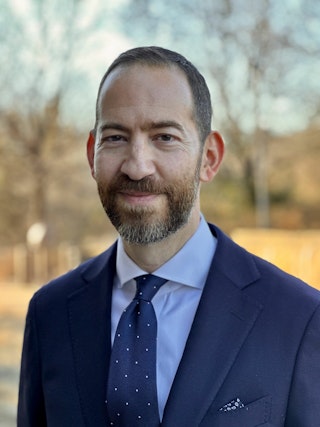Editor’s Note

“Sports? You want to do a Catalyst issue on sports?”
That was my first reaction a few months ago, when my colleague (read: boss), David Kramer, suggested the idea. Growing up in a small town without any major league teams, I was only a sometimes fan as a kid. (Sorry, Spitfires.) Like almost everyone else my age, I knew the story of the Miracle on Ice, but apart from that and a few other Cold War episodes, I didn’t see how sports intersected with the policy work we do at the George W. Bush Institute.
Part of being a decent journalist involves fessing up when you’re wrong, however – and wow, was I wrong in this case. In the intervening months, as I started to explore the topic with my very smart colleagues (special hat tip to Kevin Sullivan and Anne Wicks), I was amazed to discover just how many ways sports – in all their rich and diverse manifestations – overlap with the issues that preoccupy us at the Bush Institute and The Catalyst.
And so, just in time for summer and with the 2024 Paris Olympics about to start, I’m proud to bring you this special issue on the theme of sports and power.
The package kicks off with a conversation between my Catalyst colleague David Kagan and the legendary, barrier-breaking columnist Christine Brennan on the reasons for and meaning of the profound recent power shifts in women’s sports. The ongoing fight for gender equity is also the theme of an essay by MIT’s Shira Springer, in which she explains how women athletes are leading the charge and leveraging their star power to demand fair treatment. And the topic also features in another great interview, this one between Anne Wicks (a former star athlete herself) and the multimedalist and Olympics commentator Summer Sanders.
One other piece in the issue deals with social justice, although this one takes on race relations, not gender. In “Everything has to work together,” David Moore of The Dallas Morning News talks to the legendary former Cowboys Cliff Harris and Drew Pearson – both members of the Pro Football Hall of Fame – about race relations on the team in the 1970s and how players learned to leave tensions behind them when they stepped onto the field.
For as long as we’ve had the Olympics – probably since the very first Games were held in Greece in 776 B.C. – sports have served as a metaphor for war and geopolitics. To explore the larger meaning of this summer’s Paris Games, we turned to Una Bērziņa-Čerenkova, an expert on China and Russia. In her essay, she explains what Olympic pageantry can tell you about the country hosting the events, and the differences in how democracies and autocracies use the Games to build soft power (among other things).
Of course, sports can converge with power in other ways. In an article that’s part analysis and personal memoir, the Bush Institute’s Igor Khrestin writes about growing up as a soccer fan in Ukraine, and two pivotal matches that helped shape his country’s identity and independence. Khrestin shows how sports can build community – a theme on which two of our other authors, David Kramer and Kevin Sullivan, also focus.
Finally, the issue includes a meditation by Jason Galui – another former star athlete now working at the Bush Institute – on how playing hockey helped prepare him for a career in the military. (Galui served as a lieutenant colonel in the U.S. Army before working in the Obama and Trump Administrations and then joining us in Dallas.)
With the presidential election getting hotter than summer in Texas, I’m grateful you’ve taken some time off from doomscrolling to read The Catalyst. We could all use something else to focus on these days – yet another way in which sports can serve us so well. As always, I welcome your thoughts.
The Catalyst believes that ideas matter. We aim to stimulate debate on the most important issues of the day, featuring a range of arguments that are constructive, high-minded, and share our core values of freedom, opportunity, accountability, and compassion. To that end, we seek out ideas that may challenge us, and the authors’ views presented here are their own; The Catalyst does not endorse any particular policy, politician, or party.

